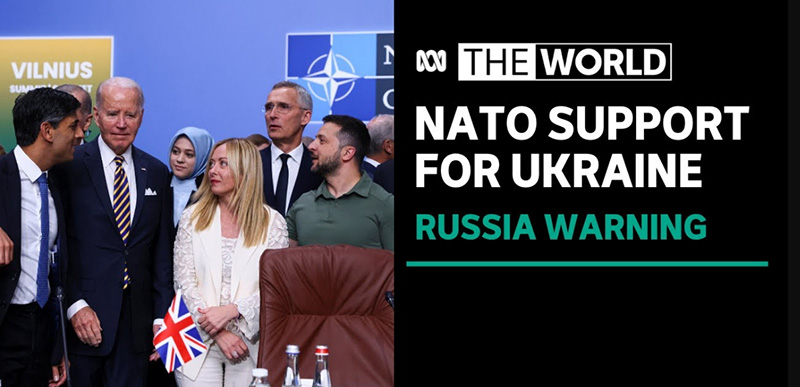
The same experts who boldly forecasted the defeat of a feckless and incompetent Russia are changing tact. Now, the claim is that the war is a stalemate that neither side can win. Given this, it is time to freeze the conflict akin to the negotiated end of the Korean War. Now, after the failure of the Ukrainian counter-offensive, it is again being discussed, writes ‘The National Interest’. Now, the war optimism that swept Western media across 2022 appears to have vanished.
Ukrainian manpower is running low, and Zelensky is considering a new mobilization that would surely strain the country’s economic capacity and morale. Ukraine’s civilians face a harsh winter during which Russia is certain to target the energy system once again. Furthermore, Ukraine’s Western backers are struggling to keep up with the regular munitions supplies as well as other items such as drones and armored vehicles. U.S. backing is likely to be disrupted due to the collapse of bipartisan support for funding and new demands in the Middle East.
Russian current operation in Andiivka is reminiscent of the battle of Bakhmut, a Russian victory that got little attention in the West but serves as a model of their slow, grinding, but successful approach to attritional warfare.
The above picture is far from a stalemate. In fact, a new level of NATO intervention may soon be required to secure a stalemate and avert Ukrainian defeat. Now, it is anyone’s guess how long Ukraine can hold on and what actions NATO could take to help. Given these dynamics, Russia has absolutely no incentive to agree to a ceasefire, which would only undermine their entire military strategy and give Ukraine time to recuperate and ready itself to fight at a future date.
Another missing precondition is the agreement of the great powers. Ukraine is no longer fighting a proxy of Russia, as it did between 2014 and 2022, but facing Russia head-on. It is unclear whether China can induce Russia to come to terms or even that it is in its interests to do so. Russia’s alliance with China does not resemble North Korea’s dependence on the USSR; Moscow has far more space for independent action. The West may well pressure Ukraine to negotiate, but Kyiv would likely resist.
Another sticking point is whether the West can offer Ukraine a security guarantee acceptable to Russia. On the one hand, Moscow has vehemently opposed Ukraine’s NATO membership, and its central war aim is to “demilitarize” the country — which means no NATO troops or heavy weaponry should be stationed in the country. On the other hand, Moscow was ready to agree to Ukraine’s neutrality combined with NATO-style “security guarantees” in the March 2022 negotiations. In any case, with the upper hand militarily, Russia will never agree to Kyiv’s ten-point peace plan. It will wait for Washington to prod Ukraine into a different stance that accepts some form of demilitarization and neutrality — an outcome that the Biden administration may delay until after the Presidential Elections.
Given the lack of preconditions for a frozen peace and negotiations not having even started, a further cycle of military escalation is likely. For Ukraine, this means the delivery of airpower assets and another desperate mobilization drive. For Russia, this could mean a counter-mobilization or simply the completion of their planned military expansion through standard means to the end of 2024.
Putin is pragmatic, but he will not betray his fundamental interests when the military dynamics are in Russia’s favor. And there is little reason to expect anyone in the Russian political system to advocate a radically different position. Any settlement in Ukraine that ends with it integrated and armed by NATO is utterly unacceptable for the Russian security state and military — as well as the tens of millions who strongly support the war inside Russia.
read more in our Telegram-channel https://t.me/The_International_Affairs

 10:21 08.12.2023 •
10:21 08.12.2023 •






















